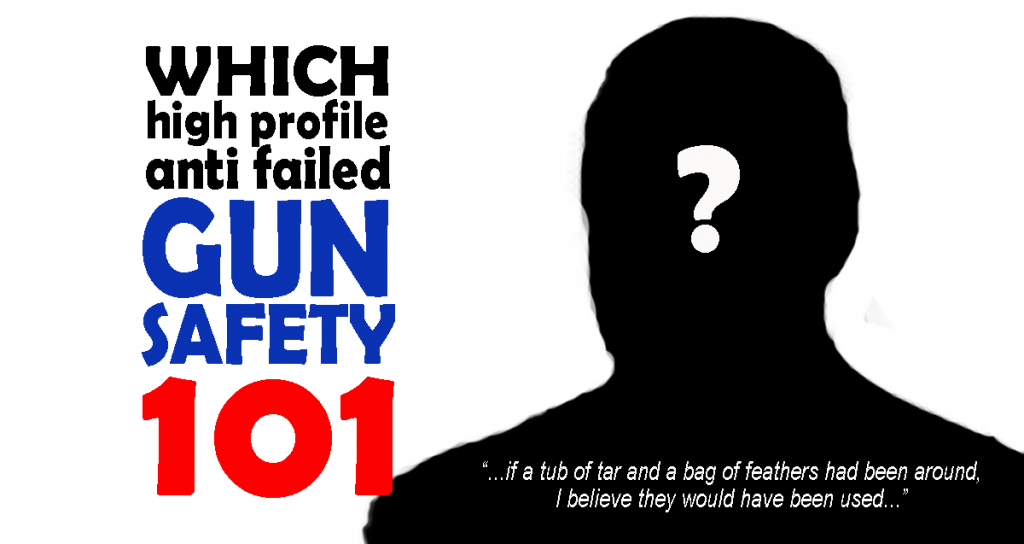How an anti failed gun safety 101

Well, actually, yes, it is.
Who is Philip Alpers?
Philip Alpers
Alpers is well known in shooting circles, for the wrong reasons.
He is the founding director of GunPolicy.org, which is hosted by the University of Sydney. He is an Associate Professor, which is a title you can obtain without having a proper academic record. Corregidor.org has quoted Sydney University as advising that
“Mr Alpers is an adjunct associate professor in the School of Public Health who was appointed on 14 December 2004. Mr Alpers is not a university graduate, as would normally be required by the Faculty of Medicine’s policy on adjunct titles.”
He has also previously been involved with “GunSafe” in New Zealand, and someone the media takes as an expert on gun safety and gun policy – even though he lacks what we believe are any qualifications or experience which come close to being relevant.
You can read more about Alpers at SSAA’s website by clicking here and on Firearms Owners United’s website by clicking here.
A danger on the range
A few years ago, we heard a story about how Alpers had some sort of problem when being shown how to use a rifle at a shooting range in New Zealand.
After seeing the recent SSAA post on Alpers (mentioned above) a few days ago, we thought we’d see if we could find more about this little known event.
Thanks to SSANZ, we found a letter from a range officer written in ’98, who was at a range that Alpers visited “a couple of years ago” – which would be around the peak of the gun debate after Port Arthur.
The letter speaks for itself and needs little further comment.
Oh, so it was the guns fault?
No. Real gun safety experts – in fact, any shooter with any real experience – would say that.
A question for the University of Sydney
Sydney University claims that the facility it provides to gunpolicy.org helps advance and disseminate “global efforts to prevent gun injury”.
Yet Alper’s background, conduct, and lack of relevant experience and qualifications raises a serious question that the university needs to consider. That question is, is it appropriate for a higher education institution to trust the opinion of a person whose experience in research is not clear, has little or no experience in the firearms industry and demonstrates inappropriate conduct in their claimed expertise?
They woudn’t accept that for someone practicing in medicine; they wouldn’t accept that for someone practicing law; so shouldn’t accept that for someone engaging in in serious policy debate. Where is his coaching accreditation? What about range officer training? What about firearm knowledge?….
The university should disassociate itself from him and in find someone who has the right qualifications and experience and provide the credibility they need.
That can be found within our industry, even within the CFCV.
All they have to do is look for it.